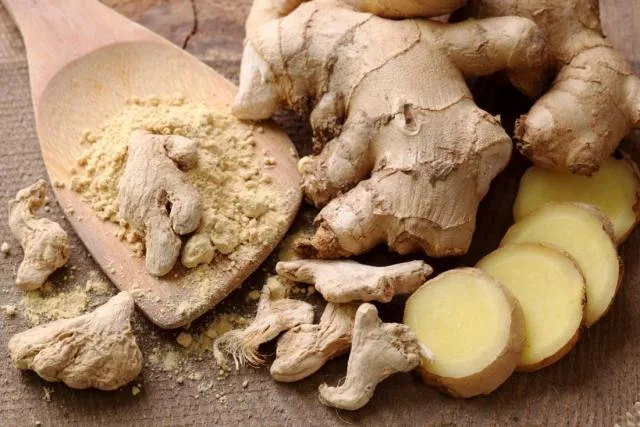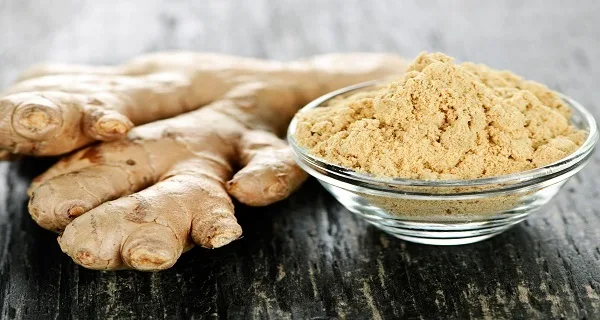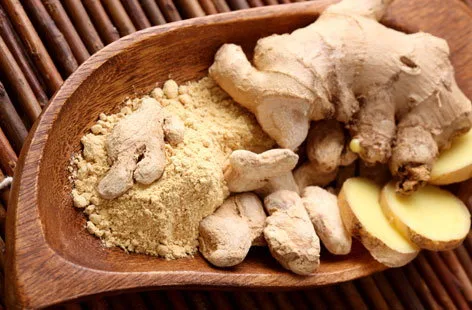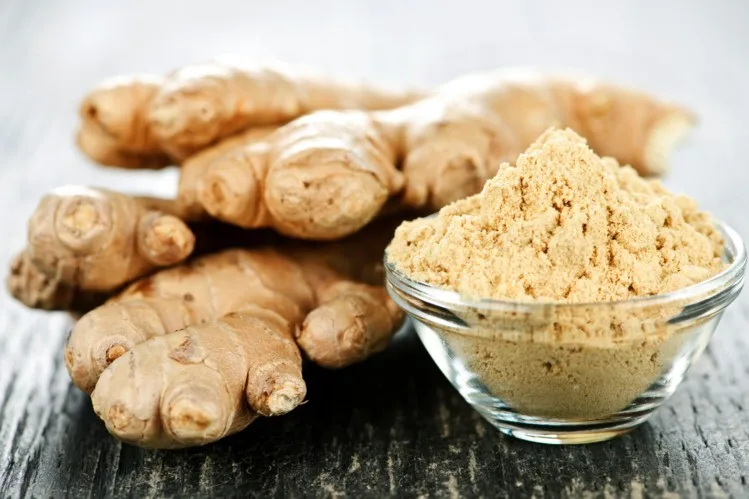Understanding Ginger: A Nutritional Powerhouse
Ginger, scientifically known as Zingiber officinale, is a nutritional powerhouse revered for its numerous health benefits and culinary uses. This knobby, aromatic root has been an integral part of traditional medicine and culinary practices in numerous cultures for centuries. Rich in bioactive compounds such as gingerol, shogaol, and paradol, ginger possesses potent anti-inflammatory and antioxidant properties. These compounds not only give ginger its distinctive spicy flavor but also contribute to its therapeutic effects.
Digestive Delight:
Ginger is known for its positive impact on digestion. It can help alleviate nausea and reduce symptoms of indigestion. This might make it a popular remedy for motion sickness and morning sickness in pregnant women. Also, it improves gastrointestinal motility which aids in the absorption of essential nutrients from the food people consume.
Defying Inflammation:
Moreover, ginger has promising effects in managing inflammatory conditions like osteoarthritis as well as rheumatoid arthritis. Additionally, it reduces muscle pain and soreness after intense physical activity. The anti-inflammatory properties of ginger can help reduce oxidative stress and inflammation in the body. Hence, potentially lowering the risk of chronic diseases.
Guarding the Heart:
Additionally, ginger supports cardiovascular health by improving circulation and reducing cholesterol levels. The result of this is a reduced risk of heart disease, which is beneficial for people with diabetes or those aiming to maintain stable blood glucose levels.

Ginger’s Role in Combating Body Fat
A. Ginger’s Thermogenic Power:
Its thermogenic nature is one of the key factors contributing to ginger’s potential in combating body fat. Thermogenesis refers to the process of heat production within the body. This increases metabolic rate and energy expenditure. Ginger contains bioactive compounds that include gingerol and shogaol. These are believed to promote thermogenesis. These compounds stimulate the body’s metabolism. These might result in a rise in body temperature as well as increased fat burning. By enhancing metabolic activity, ginger may aid individuals in their weight management efforts by supporting calorie expenditure as well as reducing fat accumulation.
B. Appetite Suppression:
Another way ginger combats body fat is through its potential to suppress appetite. Overeating is an important contributor to weight gain as well as obesity. Ginger has been suggested to act as a natural appetite suppressant. Consuming ginger may help individuals feel fuller for longer, reducing the desire to snack or overindulge in meals. Ginger may aid with weight reduction or maintenance goals by suppressing cravings. In addition, it increases feelings of fullness.
Ginger’s Scientific Credentials in Obesity Battle
A. Clinical Studies:
Numerous clinical studies have been conducted to investigate the impact of ginger on obesity and weight-related parameters. These studies have predominantly centered on human subjects. These may provide valuable insights into ginger’s potential as an anti-obesity agent. Results from these trials have been encouraging. Hence, revealing positive correlations between ginger consumption and weight loss. Numerous studies have linked ginger supplementation to reduced BMI as well as waist-to-hip ratio. Consumption of ginger improves metabolic markers like insulin sensitivity, lipid profiles, as well as overall weight loss. These findings suggest that ginger might be a promising adjunct in obesity management strategies.
B. Adipogenesis Inhibition:
Inhibition of Adipogenesis is among the primary methods by which ginger exerts its putative anti-obesity properties. Adipogenesis is the process through which fat cells develop. It’s important in obesity development because an increase in fat cells leads to a buildup of excess fat. Ginger has bioactive substances such as gingerols and shogaols. They’ve been proven to disrupt adipocyte differentiation. According to the study, these substances can inhibit the expression of adipogenesis-related genes. These can limit the formation of new fat cells. Furthermore, ginger’s active components have been demonstrated to promote lipolysis (fat breakdown) and thermogenesis (body heat creation), both of which result in increased energy expenditure and fat burning.

Ginger’s Potential in Diabetes Management
Ginger, has a long history of medical usage in numerous cultures. It is appreciated not just for its culinary appeal but also for its prospective health advantages. Two major elements stand out in the context of diabetes: glucose management and antioxidant and anti-inflammatory effects.
A. Glycemic Control:
One of the most difficult aspects of diabetes therapy is maintaining constant blood sugar levels. According to research, ginger may help with glycemic management. Ginger has been demonstrated in studies to improve insulin sensitivity. It allows cells to better respond to insulin and effectively absorb glucose from the bloodstream. This can help reduce post-meal blood sugar spikes as well as contribute to overall better diabetes management.
B. Antioxidant and Anti-inflammatory Properties:
Diabetes is frequently linked to oxidative stress and chronic inflammation. Both of which can hasten the disease’s course and consequences. Ginger contains potent antioxidants that help neutralize harmful free radicals in the body. Furthermore, it reduces oxidative stress and cellular damage. Ginger may also help protect beta cells in the pancreas from degeneration by decreasing oxidative stress.
Furthermore, ginger exhibits robust anti-inflammatory properties which can help alleviate systemic inflammation linked to diabetes. Chronic inflammation is implicated in insulin resistance as well as other metabolic abnormalities seen in diabetes. By dampening inflammation, ginger may contribute to improved insulin sensitivity and better glucose regulation.

Ginger and Diabetes: Scientific Evidence
A. Human Studies:
Numerous human researchers have looked into the link between ginger & diabetes. The Journal of Complementary & Integrative Medicine claims that frequent ginger eating improves fasting blood sugar levels as well as HbA1c. This is a long-term measure of blood glucose management. The active compounds in ginger are gingerols and shogaols. They are believed to enhance insulin sensitivity, thus aiding in glucose regulation.
B. Complications Prevention:
Diabetes care must include the prevention of diabetes-related complications. According to research, ginger may give some protection against these issues.
Diabetic neuropathy is a disorder characterized by nerve degeneration. It’s a frequent consequence of diabetes.
According to a study published in the International Journal of Food Sciences and Nutrition – ginger administration enhanced nerve conduction velocity and lowered neuropathy symptoms in diabetic rats. This result implies that ginger is effective in avoiding diabetic neuropathy.
Nonetheless, ginger has powerful antioxidants as well as anti-inflammatory effects. These contribute to its ability to avoid problems like diabetic nephropathy and retinopathy. Ginger may help protect important organs and tissues from the negative consequences of prolonged high blood sugar levels by lowering oxidative stress and inflammation.
Incorporating Ginger into Your Diet
One of the most frequent methods to include ginger in your diet is through cooking. Ginger root can be minced, grated, or sliced fresh. This is used to season soups, stews, stir-fries, and curries. Its spicy, peppery taste complements both vegetarian and meat-centric meals. As a consequence, your taste buds will enjoy an unforgettable and delectable experience.
Ginger may also be put into a calming and energizing tea. Simply steeping sliced ginger in hot water produces a soothing tea that might be enjoyed all day. Ginger tea not only has a lovely taste but it also has numerous health advantages. Ginger’s bioactive components have strong antioxidant as well as anti-inflammatory effects. Thus, they might alleviate nausea, assist digestion, as well as enhance the immune system.
For those with a sweet craving, ginger may be used to lend zest to pastries and baked products. Gingerbread, ginger biscuits, and ginger-infused cakes are popular options for savoring the spice’s distinct flavor in a delightful form.
Blending ginger into smoothies or juicing it with fruits and vegetables is another innovative way to integrate it into your diet. This not only gives a tart touch to your beverage, but it also infuses it with ginger’s numerous health benefits. These include potential digestion support as well as anti-inflammatory effects.

Final Thoughts
Ginger’s therapeutic potential in fighting obesity, body fat, and diabetes. It is supported by a growing body of scientific evidence. From promoting thermogenesis and appetite suppression to enhancing glycemic control as well as combating inflammation. Furthermore, ginger provides a multifaceted strategy to address these health issues. As with any natural therapy, it is critical to seek the advice of a healthcare expert to establish the most appropriate and effective ways to include ginger into one’s lifestyle for the best outcomes. Got questions? We’ve got answers. Contact us now!
Thank you for reading this post, don't forget to subscribe to our free newsletter
!
